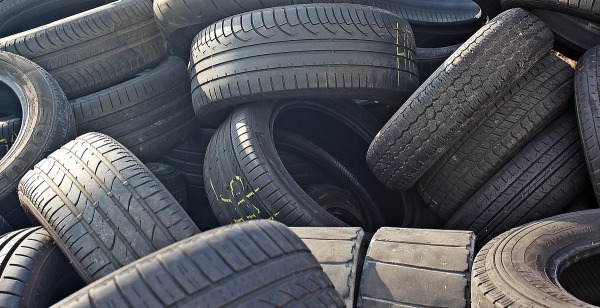Waste Disposal Regulations Every Plant Manager in Ontario Should Know
As a plant manager in Ontario, you need to be aware of and follow the waste disposal regulations set up by the government.
Make sure you know what is required so that you don't experience fines or lose your right to do business.
Looking for forklift safety training to keep your staff safe too? Contact Forklift Hub today.
Waste Disposal Regulations in Ontario
The Ontario government has several laws or acts that relate to waste disposal and recycling that you need to be familiar with and follow. They include:
1. General - Waste Management: Environmental Protection Act
2. The Environmental Protection Act (EPA)
3. Waste Audit and Reduction Workplan Regulation
4. Industrial, Commercial and Institutional Source Separation Programs
1. General - Waste Management: Environmental Protection Act R.R.O. 1990, Regulation 347
This first General Waste Management Act covers waste disposal regulations around the different types of designated wastes and how to properly dispose of them. It gives you a list of items that are designated as wastes such as:
Processed organic waste
Used tires that have not been refurbished for road use
Refrigerant waste
Residue from an industrial, manufacturing or commercial process or operation
Construction site materials
Used lubricating oil, and many more.
For a complete list of designated wastes, click here.
The act also deals with hazardous waste disposal and the fees involved, the standards for waste disposal sites, and the regulations surrounding the transportation of waste within, out of, and into Ontario
Used tires are considered waste and need to be disposed
of properly
2. The Environmental Protection Act (EPA)
The purpose of this next act is to protect and conserve our natural environment. The Environmental Protection Act was instated to address issues such as pollution, waste management, waste disposal, litter management, and litter disposal.
In general, this act prohibits anyone from discharging any contaminants into the natural environment in an amount or concentration that exceeds the amounts outlined in these regulations.
The Environmental Protection Act also covers litter disposal
3. Waste Audit and Reduction Work plan Regulations
The waste disposal regulations outlined in these next regulations deal with waste reduction work plans to reduce, reuse, and recycle waste.
When developing these work plans, reduction of waste is your first priority. If reduction is not possible, then reusing waste is your next priority, followed by recycling.
The Waste Audit and Reduction Work Plans outline regulations that specifically relate to:
Retail shopping establishments and shopping complexes
Large construction and demolition projects
Office buildings and restaurants
Hotels and motels
Hospitals and educational institutions
Large manufacturing establishments
Waste disposal regulations need to be followed on large construction sites
4. Industrial, Commercial and Institutional Source Separation Programs
This part of the Environmental Protection Act covers source separation programs for different types of wastes. Source separated waste refers to "waste that has been source separated from other kinds of waste."
The specific types of source separated waste for different sectors are outlined in the regulations. For example, if you are a large manufacturing establishment, your source separated wastes would include:
Aluminum
Cardboard (corrugated)
Fine paper
Glass
Newsprint
Polyethylene (high density) jugs, pails, crates, totes and drums and (linear low density and low density) film
Polystyrene (expanded) foam, trays, reels and spools
Steel
Wood (not including painted or treated wood or laminated wood)
Source separated wastes include items such as cardboard, aluminum, and glass
5. The Environmental Assessment Act
The purpose of this Act is to better the people of Ontario "by providing protection, conservation and wise management of the environment." The Act applies to major commercial or business enterprises, activities, or proposals, plans or programs.
It deals with important topics such as environmental assessments, municipal waste disposal, and the regulations surrounding the safe disposal of wastes.
The Environmental Assessment Act deals with topics such as environmental assessment
6. The Planning Act, R.S.O. 1990, c. P.13
The Planning Act outlines the rules and guidelines for planning out the usage of land to promote sustainable economic development while making sure that the natural environment is also protected.
It deals with zoning laws, land use controls, community improvement, the subdivision of land, and the fines and fees associated with these topics.
It provides the government with a land use planning system that integrates provincial interests with municipal planning decisions. The types of land designations covered include:
Manufacturing
Warehousing
Office
Retail
Residential
Forklift Hub Is Committed to Environmental as Well as Workplace Safety Practices
Forklift Hub believes that all types of safety practices, whether it is safely disposing of wastes or safe workplace practices, are important.
That is why we offer the best forklift safety training programs in the Kitchener-Waterloo area.
Our highly experienced trainers will instruct your employees in the proper practices of operating forklift equipment safely. Contact us today to book your training sessions.
Forklift Hub Offers Top Quality Service on All Forklift Makes and Models
If you are looking for top quality forklift maintenance and service on all makes and models, contact Forklift Hub.
Our qualified technicians are capable of properly performing maintenance services and inspections of all types.
Our knowledgeable staff can keep your equipment in top working condition, which means lower repair costs and higher machine efficiency. Contact Forklift Hub today for all of your forklift maintenance and repair needs.









